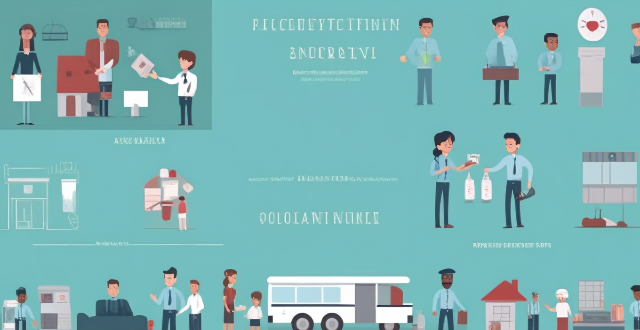Inclusive policies are designed to ensure equal opportunities for all individuals, regardless of their background or circumstances. Examples of successful inclusive policies from around the world include the Disability Rights Act in the United States, which protects the rights of individuals with disabilities; Iceland's Gender Equality Act, aimed at achieving full gender equality; India's National Rural Health Mission, a large-scale public health initiative to provide essential healthcare services to rural populations; and Canada's Affordable Housing Program, aimed at creating more affordable housing options for low-income households. These policies demonstrate the importance of addressing social inequalities and promoting inclusivity in various areas of society.

Successful Inclusive Policies from Around the World
Inclusive policies are designed to ensure that everyone, regardless of their background or circumstances, has an equal opportunity to participate in society and access its benefits. Here are some examples of successful inclusive policies from around the world:
1. Disability Rights Act (United States)
The Disability Rights Act is a landmark piece of legislation that protects the rights of individuals with disabilities in the United States. It guarantees equal opportunities for people with disabilities in areas such as employment, education, and housing. The act also established protection and advocacy systems at both the state and local levels to enforce these rights.
Key Features:
- Protection Against Discrimination: Prohibits discrimination on the basis of disability in programs, activities, and services receiving federal financial assistance.
- Program Accessibility: Requires that all programs and activities receiving federal financial assistance be accessible to people with disabilities.
- Enforcement Mechanisms: Authorizes the Attorney General to enforce compliance through civil actions and other means.
2. Gender Equality Act (Iceland)
Iceland's Gender Equality Act is a comprehensive law aimed at achieving full gender equality in the country. It covers a wide range of areas, including education, employment, health care, and political participation. The act establishes clear goals and timelines for achieving gender equality and includes provisions for monitoring progress.
Key Features:
- Equal Opportunities: Ensures equal opportunities for women and men in all areas of society.
- Workplace Equality: Mandates equal pay for equal work and promotes women's representation in leadership positions.
- Family Responsibilities: Encourages shared family responsibilities between parents, including parental leave policies.
3. National Rural Health Mission (India)
The National Rural Health Mission is a large-scale public health initiative launched by the Indian government to provide essential healthcare services to rural populations. The mission aims to address the significant disparities in healthcare access between urban and rural areas by improving infrastructure, increasing the availability of health workers, and promoting preventive care.
Key Features:
- Community Health Workers: Trains and deploys community health workers to provide basic healthcare services in rural areas.
- Health Infrastructure Development: Upgrades healthcare facilities and ensures the availability of essential medicines and equipment.
- Focus on Preventive Care: Promotes awareness about preventive healthcare measures and encourages community participation in health programs.
4. Affordable Housing Program (Canada)
Canada's Affordable Housing Program is a federal initiative aimed at creating more affordable housing options for low-income households. The program provides funding to provincial and territorial governments, as well as non-profit organizations, to build and renovate affordable housing units.
Key Features:
- Funding for Housing Projects: Allocates funds for the construction and renovation of affordable housing units.
- Support for Homeless Populations: Targets funding towards projects that support homeless individuals and families.
- Collaboration with Partners: Works with provincial and territorial governments, as well as non-profit organizations, to implement housing projects.